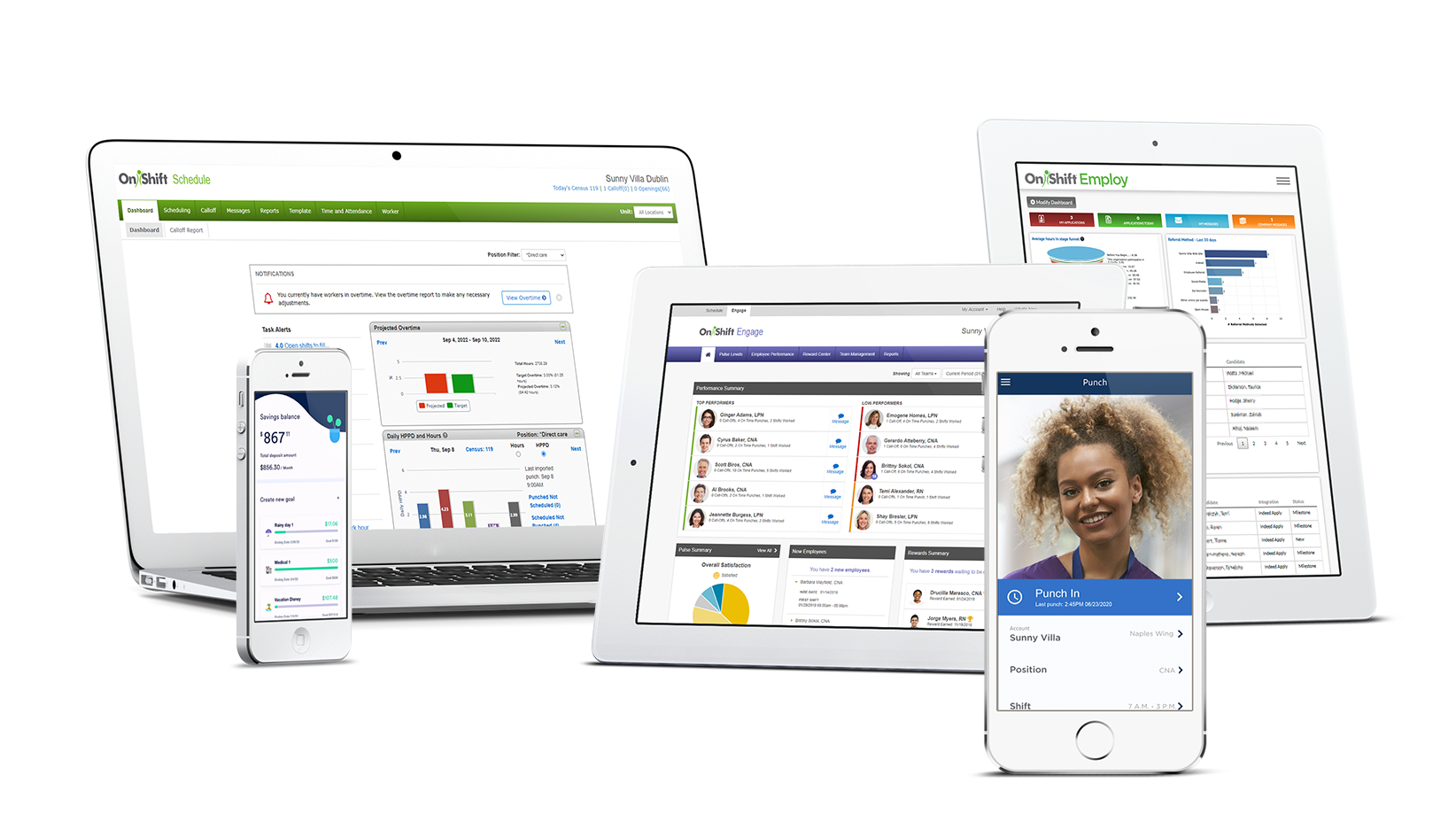March 8, 2018 | Mike Pumphrey
March 8, 2018 | Mike Pumphrey
 We all know that quality care and service would not be possible without the hard work and dedication of employees. Caregivers and staff play an undeniable role in ensuring residents are comfortable and satisfied.
We all know that quality care and service would not be possible without the hard work and dedication of employees. Caregivers and staff play an undeniable role in ensuring residents are comfortable and satisfied.
However, labor is a provider's largest expense. So, how can you find a happy balance between caring for residents and controlling labor costs? By implementing a more robust staffing strategy - one that enables you to hit your daily labor management goals while staffing for quality care and compliance. Here are 6 tips for doing just that.
1. Set Labor Budget Goals & Minimums
Ensuring quality care starts with establishing labor budget targets. Set an hours per patient day (HPPD) goal for each care position and use this information to drive staffing requirements for each shift. For an added layer of compliance, establish minimum acceptable staffing levels. Management and schedulers should have real-time visibility into this data and know exactly what holes need to be filled to hit your daily staffing goals.

2. Verify Employee Skill Sets & Certifications
Part of knowing you have the right person, in the right place, at the right time is understanding the skills each employee brings to the table. Access to employee certification information can help you quickly identify and schedule the right mix of employees to deliver quality care to residents.
3. Get Consistent With Assignments
Having set rotations not only benefits your employees, but your residents as well. When schedules are consistent, so is the care being provided. This not only impacts resident satisfaction, but can lead to a level of person-centered care that otherwise wouldn’t be achievable.
4. Anticipate Resident Move Ins & Outs
Staffing requirements may change as residents arrive and others move out. Implement a process where any anticipated census/occupancy changes are communicated to the scheduler so they have the time needed to add or remove staff in order to hit the established labor budget.
5. Be Prepared For Acuity Fluctuations
Not all staffing needs can be anticipated and often require quick action. Scheduling software like OnShift integrates with clinical applications, giving an up-to-the minute view of needs based on census/occupancy levels and resident acuity, enabling you to make quick staffing decisions.
6. Meet Payroll-Based Journal Staffing Requirements
Meeting PBJ reporting mandates is extremely important for skilled nursing providers, as it will soon drive their Five-Star Staffing rating. To ensure you receive credit for the resident care you provide, a process to document, track and verify staffing must be established. This includes care provided from employees (both salaried and hourly), as well as contracted and agency hours.
“To provide quality care you must have the proper amount of staff. With OnShift, we have visibility into staffing needs based on our census and resident acuity. This allows us to quickly adjust staffing so that we are providing 24/7 quality care for all of our residents.”
– Chris Stach Altercare Integrated Health Services Director of HR Support & Services
Subscribe to the OnShift Blog
Recent Posts
Categories
About Mike Pumphrey
Mike Pumphrey is Vice President of Product Marketing at OnShift. His expertise in staffing and labor management strategies in long-term care and senior living is foundational to his role leading OnShift’s Product Marketing team. Mike works hand-in-hand with state and national associations, senior care providers, and with OnShift’s Customer Success and Product teams to create impactful best practices aimed to help solve the daily workforce challenges in senior care. Mike shares insights, research and recommendations to improve clinical, operational, and financial outcomes through regular blog posts and conference speaking engagements.
See for yourself why thousands of providers rely on OnShift’s innovative software for recruitment, hiring, workforce management, pay and engagement. Request your personalized demo today.
